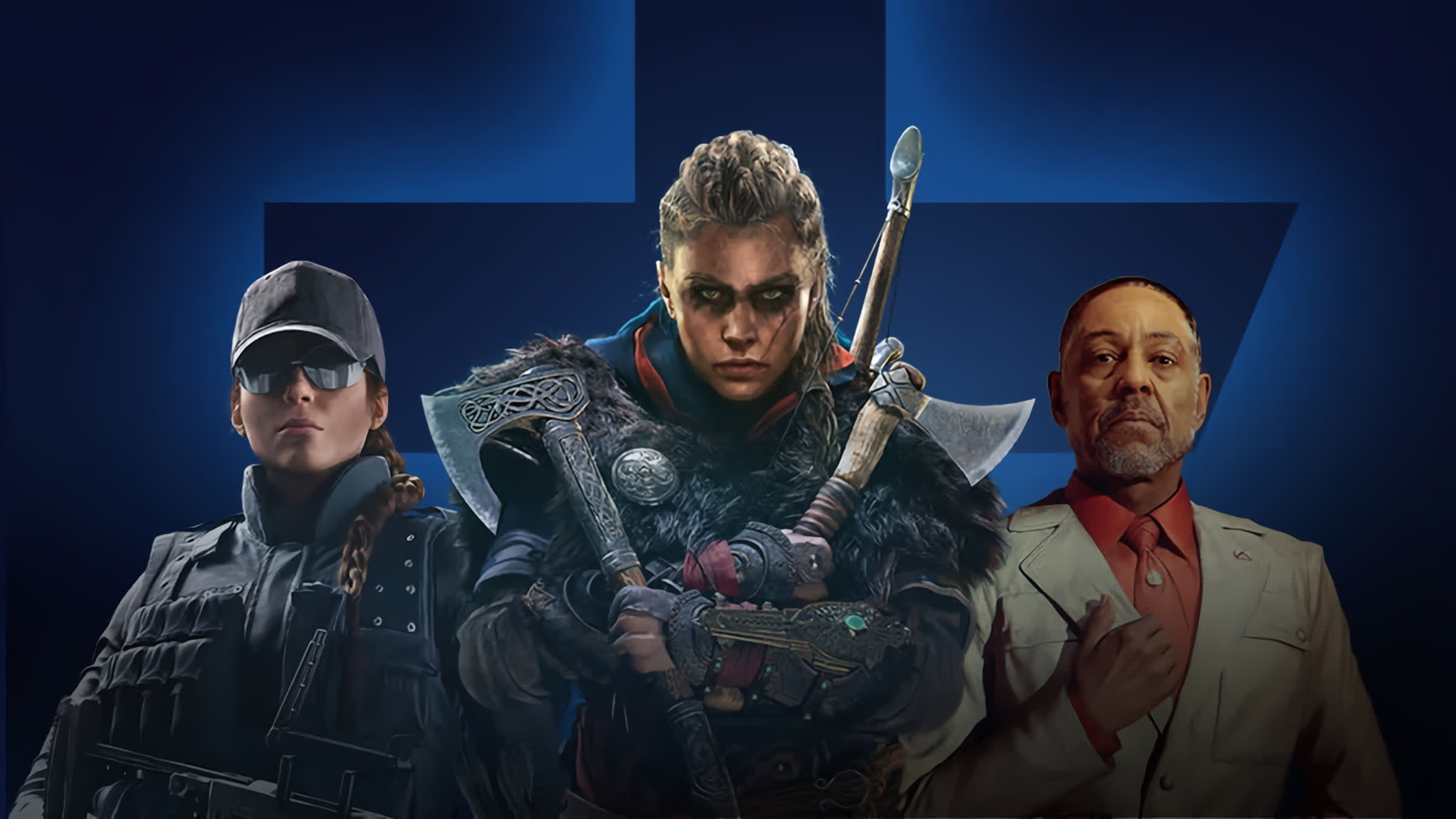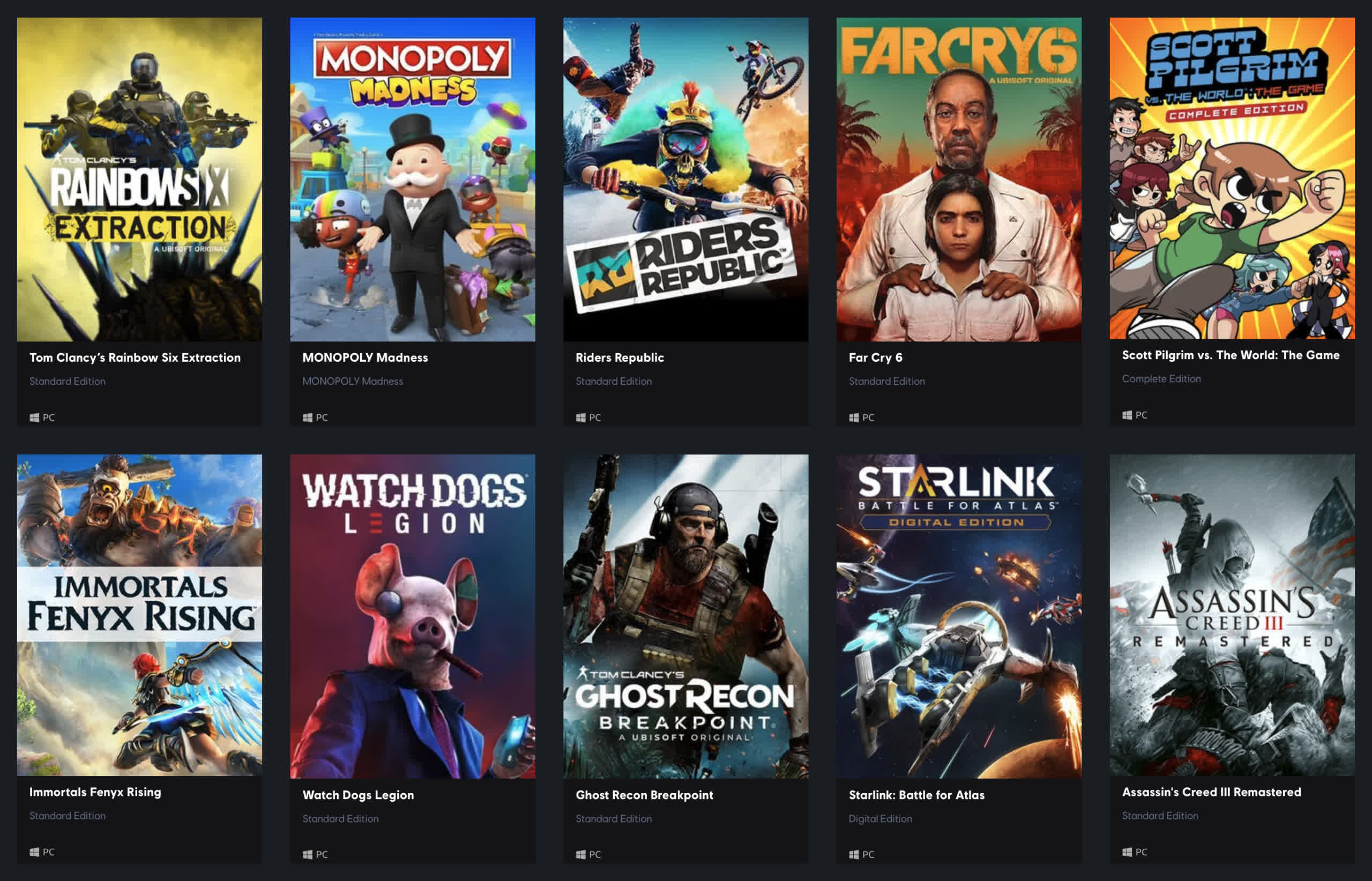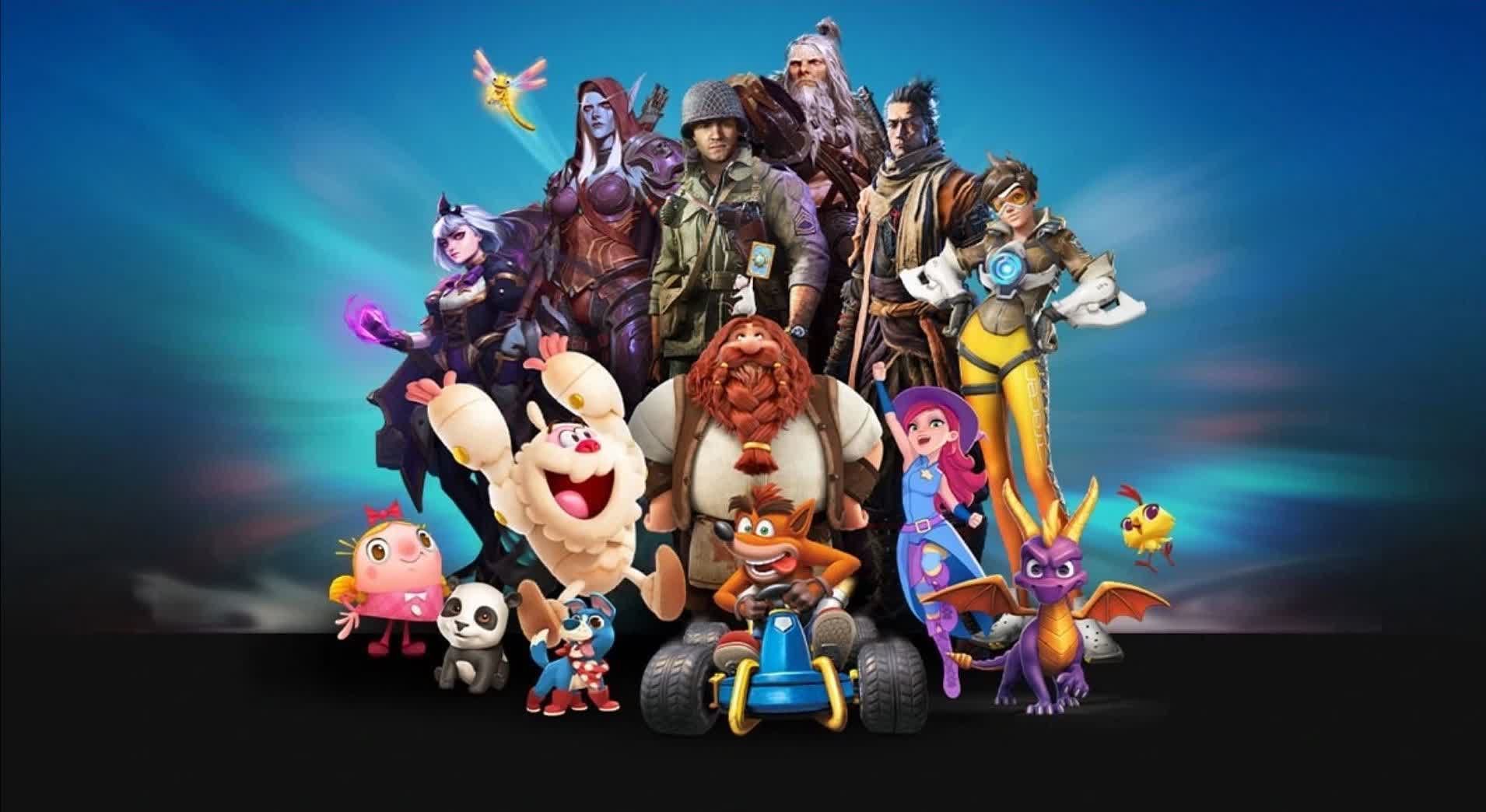Bottom line: Ubisoft is rebranding and restructuring its subscription service again. The platform will now offer two tiers called Ubisoft+ Premium and Ubisoft+ Classics. It's all a bit confusing, but Ubisoft executive Philippe Tremblay sorted it out while insinuating that we will soon not own our games.
On Monday, Ubisoft announced its Plus (Ubsoft+) subscribers would now have two choices to play their favorite games - Premium and Classics. The Premium tier goes for $18 per month on PC, Xbox, and Amazon Luna, while a Classics subscription is less than half the price at $8 but is only available on PC.
Ubisoft Director of Subscriptions Philippe Tremblay said the restructuring is a natural "evolution" of the service.
"We looked at the consumer behaviour and how people were interacting with our offer, and we saw an opportunity for us to evolve," Tremblay explained in a GamesIndustry.biz interview. "When we look at how gamers engage with our different games, we see that our back catalogue is still very active and alive. So we saw an opportunity to offer these worlds to our consumers for a lower fee."
Ubisoft+ Premium is the old Uplay+ subscription. It includes over 100 games from the company's catalog, including newer titles like Assassin's Creed Valhalla, Assassin's Creed Mirage, and the upcoming Skull and Bones. Premium members also have access to the Classics catalog.
Ubisoft+ Classics only allows access to about 50 games in the publisher's back catalog. While Classics is a standalone subscription for PC users, Sony cut a deal with Ubisoft to roll it into the PlayStation Plus Extra subscription in 2022. The newest Classics game available is the two-year-old Rainbow Six Extraction.
It's somewhat hard to believe Ubisoft is still running a subscription model. After all, its once separate Classics membership on PlayStation 4 and 5 is now homogenized into the PS+ mid-tier package, which goes for $15 per month or $135 per year. Ubisoft+ Premium is unavailable on Sony's console, but remains as an $18 per month add-on subscription for Xbox Game Pass.
Why anyone would want to pay a similar price or more for a subscription to one publisher's games is beyond me, but according to Tremblay, the numbers are there. He says players have spent billions of hours playing on Ubisoft+ over the last four years, with millions subscribing. However, he does admit that some users only subscribe for one month to try a game before buying it.
"There are multiple behaviours," Tremblay said. "There are definitely a lot of people who come in for one game and then decide to buy it after [the subscription ends]. That's part of the reality and that's ok [sic] with us."
"That's okay" with Ubisoft for now, but the company would love to see a complete shift to a games-as-a-service (GaaS) model. Tremblay says that the gaming industry is headed toward GaaS just as CDs and DVDs have transitioned to subscription services like Spotify and Netflix. It's just taking gamers longer to get on board.
"One of the things we saw is that gamers are used to, a little bit like DVD, having and owning their games. That's the consumer shift that needs to happen," he said. "They got comfortable not owning their CD collection or DVD collection. That's a transformation that's been a bit slower to happen [in games]. So it's about feeling comfortable with not owning your game."
His vision is not unfounded, but the transition to a universal GaaS is a long way away, and what it looks like will not likely be singular publishers with independent platforms. The VoD (video-on-demand) industry is experiencing massive subscription fatigue currently. Big video-streaming players are folding under people's natural inclination not to subscribe to every VoD service available.
Consumers have spoken with their wallets, declaring that they prefer homogenized services like Netflix, Amazon Prime Video, or Hulu over singular networks like Disney+, Paramount+, or HBO Max. This dynamic has caused a bit of a panic, prompting larger companies to buy up smaller producers or re-launching content on platforms they canceled licensing with not so long ago.
Tremblay acknowledged subscription fatigue as a problem, and gamers may ultimately prove an even harder crowd to win over. A large swath of the game-playing populous is tolerant of a few homogenous subscriptions like Game Pass or PlayStation Plus that allow them to play online games with the bonus of having a library of free-to-play older and newer titles from various publishers. Far fewer think, "What's another $20 per month for one publisher's games?"
Tremblay didn't specifically mention any solutions to subscription fatigue but said that Ubisoft is "embracing" the problem.
"[Subscription fatigue] is part of the consumer reality," he concludes. "And I'm a dad with teenagers... it's difficult to keep up with what you're subscribing to and where. That's part of the challenge we have as a subscription service, and we're embracing that."


